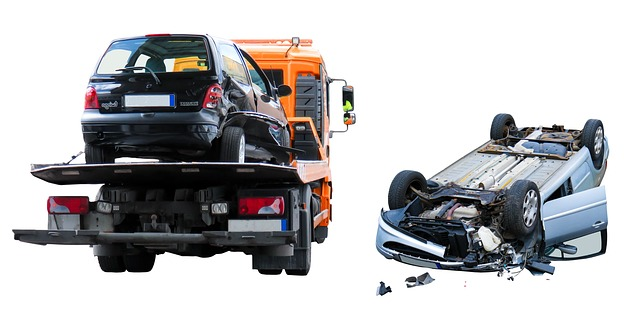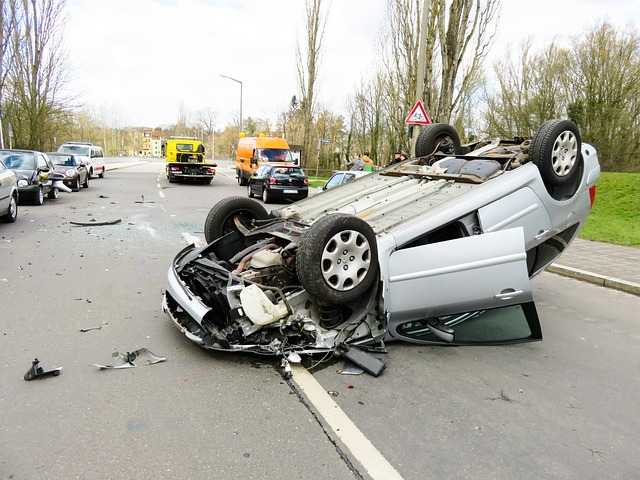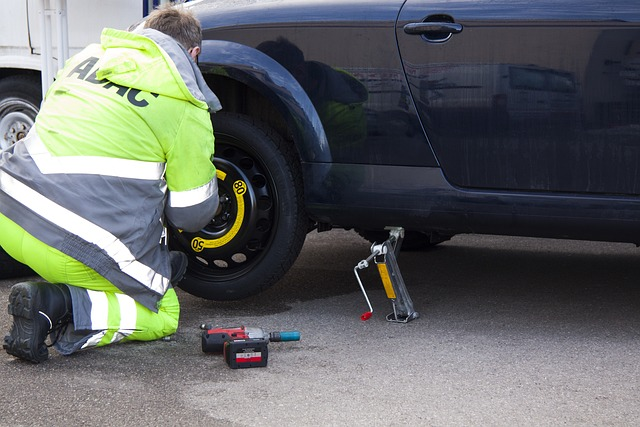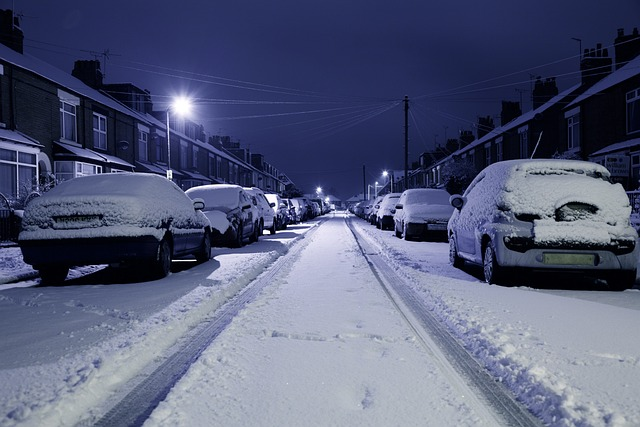The open road calls to many of us, and the allure of traveling in a recreational vehicle (RV) is undeniable. But did you know that “how do RV accidents differ in severity and cause compared to regular vehicle accidents?” is a question that many people ask? Understanding these differences is crucial for anyone who operates or plans to operate an RV, as it can help you take the necessary precautions to ensure your safety and the safety of others on the road.
In this blog post, we will delve into the unique challenges and risks associated with RVs, discussing the factors that contribute to the severity of accidents, common causes, and useful prevention tips. Moreover, we will explore the legal considerations surrounding RV accidents, providing valuable insights for those who find themselves in such unfortunate situations.
Key Takeaways
- RV accidents differ from regular vehicle collisions in terms of size, weight, driver experience and severity of injuries.
- Common causes include driver error, mechanical issues and road conditions. Understanding these can reduce the likelihood of such incidents.
- Legal considerations should be taken into account to seek fair compensation for losses or injuries caused by RV accidents.
RV Accidents vs. Regular Vehicle Accidents: Key Differences

When comparing RV accidents to regular vehicle accidents, there are significant differences that can lead to more severe consequences. RVs’ large size, substantial weight, and the potential for inexperienced or untrained drivers make them unique in the realm of traffic safety. These factors can result in serious injuries, extensive property damage, and complicated legal proceedings.
While RV and regular vehicle accidents share several similarities, gaining insights into their unique aspects is vital for prevention and effective handling of such incidents. The subsequent sections will delve deeper into these disparities, scrutinizing the implications of:
- Size
- Weight
- Driver’s experience
- Severity of injuries
In car accident, RV accidents, and motor vehicle accidents, catastrophic injuries, including severe injuries and fatal injury, can occur, often revealed through the analysis of crash data. Traffic related injuries, such as those resulting from an RV crash, can lead to devastating consequences for those involved.
Size and Weight of RVs
One of the most striking differences between RVs and regular vehicles is the size and weight. RVs can be significantly larger and heavier than a single vehicle, which can greatly influence their maneuverability during emergency situations. This increased size and weight can lead to serious injuries in case of an accident. Moreover, the size and weight of an RV can contribute to a higher fatality rate compared to regular vehicles.
Travel trailers, motorhomes, and other types of RVs can be particularly challenging to navigate, especially in tight spaces or when making sharp turns. The large size of these vehicles, similar to tractor trailers, can make them more susceptible to wind forces, further increasing the risk of accidents. Balanced weight distribution and comprehension of the vehicle’s attributes are key to guaranteeing safety while driving an RV.
Driver Experience and Training
Another key difference between RV and regular vehicle accidents is the role of driver experience and training. Inexperienced RV drivers may be more prone to accidents due to lack of familiarity with the vehicle’s handling and unique characteristics. Moreover, many RV drivers do not possess a commercial driver’s license or have undergone specialized training, which can increase the risk of vehicle collisions.
To operate an RV safely and reduce injury severity outcomes, it is recommended that drivers take RV education courses or training programs. These courses can help drivers better understand the size, weight, and towing capabilities of their RV, as well as improve their overall driving skills. Investing in appropriate training can lower the accident risk for RV drivers, making their road experience safer.
The Impact of RV Accidents: Severity and Injuries

The severity of RV accidents can be particularly alarming. These accidents often result in traumatic brain injuries and rollover injuries due to the vehicle’s size and lack of seatbelt usage. The National Highway Traffic Safety Administration (NHTSA) estimates that approximately 70,000 individuals in the United States sustain injuries annually in RV-related crashes.
In the following sections, we will explore the types of injuries commonly associated with RV accidents, as well as the factors that contribute to their severity. Comprehending the potential aftermath of RV accidents is a vital step towards recognizing the significance of preventative and safety measures.
Traumatic Brain Injuries

Traumatic brain injuries are common in RV accidents due to the force of impact and lack of seatbelt usage. These injuries can range from:
- Concussions
- Head contusions
- Coup-contrecoup injuries
- Diffuse axonal injuries
The long-term effects of traumatic brain injuries suffered in RV crashes may include vulnerability to psychiatric illness, cognitive impairments, and other health issues.
The size, weight, and potential for more severe impacts in RV accidents make traumatic brain injuries more prevalent compared to regular vehicle accidents. Additionally, not wearing a seatbelt in RVs can lead to traumatic brain injuries, as the heightened risk of head injuries in the event of an accident is one of the crash characteristics unique to RVs.
Rollover Injuries

Rollover injuries are more prevalent in RV accidents due to the vehicle’s high center of gravity and susceptibility to wind. Rollover injuries can include:
- Deep lacerations
- Broken bones
- Neck injuries such as whiplash and herniated discs
- Nerve damage
The risks associated with rollover accidents are further exacerbated by factors such as poor weight distribution and the large surface area of RVs, which make them more vulnerable to wind forces.
It has been reported that, on average, there are approximately 26 fatalities and 75,000 hospitalizations per annum attributed to RV-related accidents. Understanding the heightened risk of rollover injuries in RV accidents is crucial for operators to take the necessary precautions and adhere to safety guidelines while on the road.
Common Causes of RV Accidents

RV accidents can occur for various reasons, with some of the most common causes including driver error, mechanical issues, and road conditions. These factors can be exacerbated by the unique characteristics of RVs, such as their size, weight, and driver experience. Awareness of these common causes can help RV drivers take appropriate precautions and minimize the risk of accidents.
In the following sections, we will delve into each of these common causes of RV accidents, providing insights into how they contribute to the frequency and severity of accidents involving recreational vehicles.
Driver Error
Driver error can be a contributing factor to RV accidents in a number of ways. For instance, drivers may:
- Not be aware of the size and weight of RVs, and may not be able to maneuver them properly
- Be distracted by their phones or other devices
- Be impaired by drugs or alcohol
All of these risk factors can increase the risk of an RV accident.
Fatigue is another significant factor in RV accidents. Studies suggest that driver fatigue is responsible for up to 20% of serious accidents on motorways. RV drivers, who often drive for extended periods of time, may not be getting adequate rest, making them more vulnerable to fatigue and drowsy driving. This can negatively affect their reaction time, decision-making skills, and overall driving performance, thus increasing the risk of accidents.
Mechanical Issues
Mechanical issues can also play a role in RV accidents, as poor maintenance can lead to vehicle malfunctions and breakdowns. Some of the most prevalent mechanical issues in RVs include:
- Engine, transmission, or brake system problems caused by exceeding the vehicle’s weight capacity
- Tire problems
- Loose panels
- Broken trailer hitches
- Faulty mechanics
Routine maintenance is crucial for averting these mechanical issues, warranting the safety of both the RV occupants and others sharing the road. By inspecting and maintaining the following components, RV drivers can avert accidents and breakdowns, ensuring a safe and enjoyable journey:
- Brakes
- Tires
- Engine
- Battery
- Fluid levels
- Lights and signals
Road Conditions

Poor road conditions can also contribute to RV accidents, as they can make it more difficult for drivers to maintain control of their vehicle. Conditions such as:
- Potholes
- Debris
- Slippery roads
- High winds
Driving above the speed limit can all increase the risk of accidents, especially for drivers who are inexperienced or fatigued.
Recognizing the difficulties posed by subpar road conditions is crucial for RV drivers. This awareness enables them to adapt their driving manner and take the required precautions to lessen accident risks. By remaining vigilant and mindful of these potential hazards, RV drivers can help ensure their safety and that of others on the road.
RV Accident Prevention and Safety Tips
Preventing RV accidents involves a combination of proper weight distribution, defensive driving techniques, and regular maintenance to ensure the vehicle’s safety. By taking these precautions, RV drivers can minimize the risk of accidents and enjoy a safer, more enjoyable journey.
In the following sections, we will explore each of these preventative measures in more detail, providing practical advice for those looking to minimize the risk of RV accidents and ensure their safety on the road.
Proper Weight Distribution
Distributing weight evenly in an RV is crucial for preventing tire blowouts and loss of control. Proper weight distribution can be achieved by adhering to the 60/40 rule, where approximately 60 percent of the loaded weight should be positioned towards the front of the RV and 40 percent towards the back. Additionally, when loading your RV:
- Place heavier items on the floor and on top of an axle to avoid excessive weight on the front or back.
- Avoid overloading cabinets and storage compartments.
- Use leveling blocks to ensure your RV is level when parked.
- Regularly check tire pressure and weight distribution to maintain safe driving conditions.
By following these guidelines, you can ensure that your RV is properly balanced and reduce the risk of tire blowouts and loss of control.
By ensuring proper weight distribution, RV drivers can help prevent accidents caused by tire blowouts and maintain better control of their vehicle. This simple precaution can significantly reduce the risk of accidents and enhance the safety of the RV and its occupants.
Defensive Driving Techniques
Employing defensive driving techniques is another essential aspect of RV accident prevention. These techniques include:
- Remaining vigilant and assessing one’s surroundings
- Scanning for motorists acting recklessly
- Predicting movements of other drivers
- Verifying blind spots
- Implementing defensive driving principles
By adopting these defensive driving techniques, RV drivers can minimize the risk of accidents and ensure their safety on the road. This proactive approach to driving can help protect not only the RV and its occupants but also other drivers and vehicles sharing the road.
Regular Maintenance

Routine upkeep is paramount to ward off RV accidents and maintain the vehicle’s safety. This includes inspecting and maintaining the brakes, tires, and other essential components to avert accidents and breakdowns on the road. Moreover, routine maintenance can prolong the lifespan of the RV, sparing you from costly repairs and providing a comfortable and pleasant travel experience.
By performing regular maintenance on their RV, drivers can help ensure that their vehicle is in optimal condition and reduce the risk of accidents. This preventative measure is crucial for the safety and well-being of both the RV occupants and others on the road.
Legal Considerations in RV Accidents
The unique nature of RVs means that legal considerations in RV accidents can be complex and challenging. Establishing fault, assessing damages, and managing insurance claims demand comprehensive knowledge of laws and regulations related to RV accidents, along with a clear grasp of each case’s specific circumstances.
In the following sections, we will explore some of the key legal considerations in RV accidents, offering valuable insights for those who find themselves in such unfortunate situations. Armed with this knowledge, RV accident victims can better navigate the legal process and ensure that they receive fair compensation for their injuries and losses.
Determining Fault
Determining fault in RV accidents may require investigations by experienced attorneys to ensure proper compensation. Factors that play a role in determining fault in RV accidents include:
- Driver negligence
- Vehicle defects
- Road conditions
- Evidence from relevant authorities and witnesses
It is important to consult with an attorney who specializes in RV accidents to navigate the legal process and seek appropriate compensation.
With the help of an attorney, RV accident victims can build a strong case to establish liability and secure compensation for their injuries and losses. Legal representation can be invaluable in navigating the complexities of determining fault and ensuring that the victim’s rights are protected throughout the process.
Calculating Damages
Calculating damages in RV accidents involves considering both economic and non-economic factors. Economic damages aim to cover financial losses, like medical expenses and wages that could have been earned. They intend to make the party whole again financially. Non-economic damages, on the other hand, seek to compensate for more abstract, non-financial impacts, such as pain and suffering and emotional trauma.
The process of calculating damages in RV accidents can be complicated, and the assistance of an experienced attorney can be invaluable in ensuring that the victim receives fair compensation. By taking into account the unique circumstances of each case, an attorney can help determine the appropriate amount of damages to be awarded and advocate for the victim’s rights throughout the process.
Navigating Insurance Claims
Navigating insurance claims for RV accidents can be challenging, as insurance companies often have their own procedures and requirements for processing claims. Moreover, the unique nature of RV accidents can make it difficult to determine the appropriate coverage and policy limits, leading to potential disputes and delays in receiving compensation.
Hiring an attorney to handle insurance claims for RV accidents is highly recommended, as they can provide legal guidance, negotiate with insurance companies, and advocate for the rights and interests of the victim. With the help of an attorney, RV accident victims can ensure that they receive a fair settlement and avoid bearing the financial consequences of another person’s reckless driving.
Summary
In conclusion, RV accidents present unique challenges and risks compared to regular vehicle accidents. Factors such as size, weight, and driver experience play a significant role in the severity of these accidents and the injuries that can result. By understanding the common causes of RV accidents and employing preventative measures, such as proper weight distribution, defensive driving techniques, and regular maintenance, RV drivers can minimize the risk of accidents and ensure their safety on the road.
The legal considerations surrounding RV accidents can be complex and challenging, but with the help of experienced attorneys, victims can navigate the process and secure fair compensation for their injuries and losses. By staying informed and proactive, RV drivers can protect themselves and others on the road, making the journey safer and more enjoyable for all.
Frequently Asked Questions
Which of the following is a cause of RV accidents?
Speed is one of the most common causes of RV accidents, both driving at speeds above the speed limit and also driving too fast for conditions.
How safe are RVs in a crash?
RV safety in a crash is surprisingly high, with an average fatality rate of 0.44 per 100 million vehicles miles compared to 1.48 for all vehicles in the US.
Why do RVs increase driving risk?
RVs are more prone to rolling over due to their higher center of gravity, and reckless driving at speeds over 55 mph increases the risk even further. Additionally, overloaded or unevenly loaded RVs and their larger blind spots also increase driving risk.
What is the basic difference between a crash and an accident?
A crash involves two objects coming into contact with each other and someone being liable for the damages, while an accident is an unfortunate event usually resulting from carelessness or an absence of fault.
What are the main differences between RV accidents and regular vehicle accidents?
RV accidents differ from regular vehicle accidents due to their size, weight and the level of driver experience, resulting in more severe consequences and injuries.

